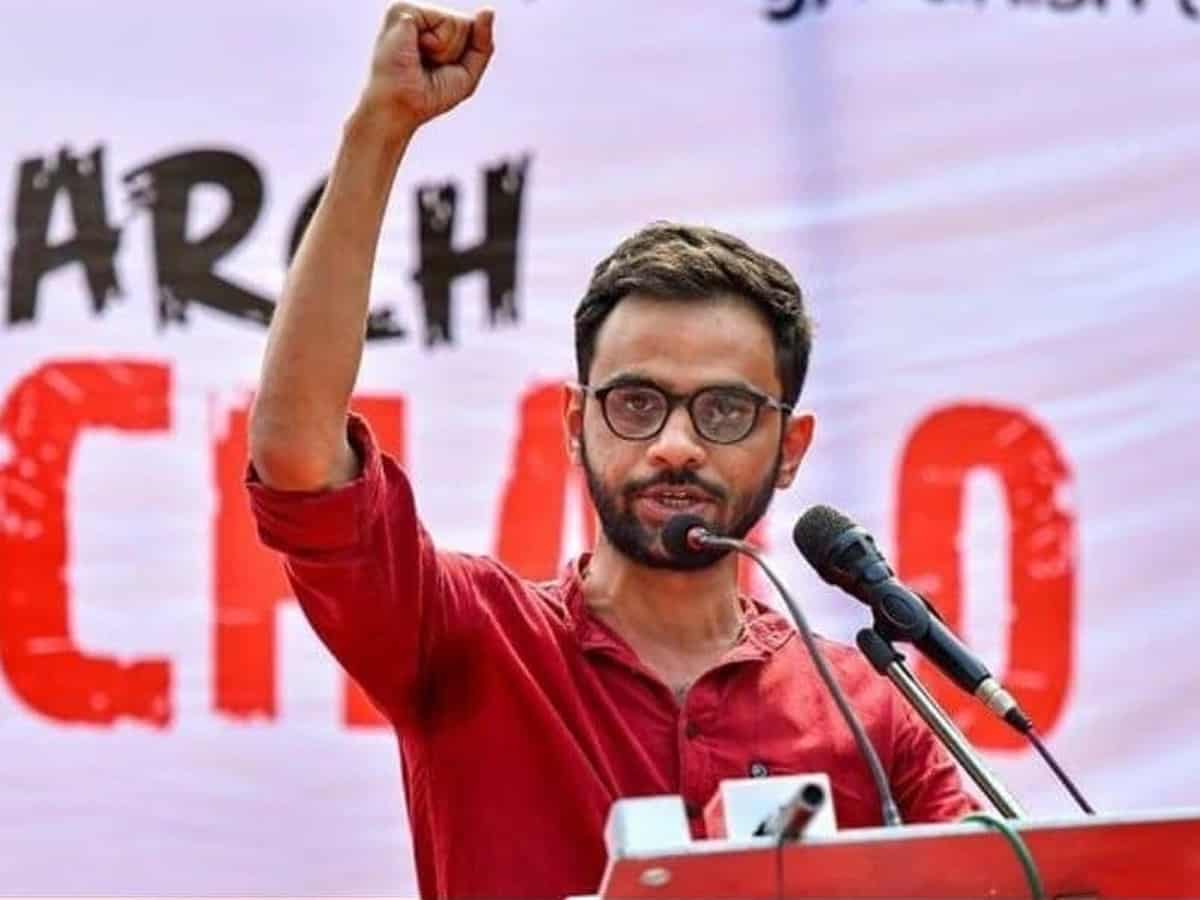Arraigned in the Delhi riots case under the contentious UAPA, JNU student activist Umar Khalid said that securing regular bail under provisions of the act is almost impossible in the near future, especially during these times.
In a letter addressed to his friends Banojyotsna Lahiri and Anirban Bhattacharya, Khalid wrote that the pandemic will only further delay the proceedings.
“Clearly, the process itself is the punishment. And this process, torturously slow even in normal times, has become excruciatingly cruel in conditions that prevail today,” the contents of the letter read, published by The Print.
Khalid began his letter by offering his condolences to Pinjra Tod activist Natasha Narwal, a co-accused in the case, whose father (Mahavir Narwal) passed away due to COVID-19.
Remembering Mahavir’s interviews after Natasha’s arrest, Khalid wrote: “Far from being bogged down by the ridiculous accusations of ‘riot conspiracy’ under which Natasha was arrested, he defended her innocence as well as her activism stating that he was proud of his daughter.”
Umar Khalid also wrote how pandemic has increased the difficulties of living in a prison by manifold, with worries about his loved ones outside.
One tries not to think too much by trying to distract oneself, but the news of death and despair that the newspaper brings every morning is so overwhelming that fending off the worst possible thoughts is just not possible. At such moments, it feels as if the jail cell is shrinking as suffocation and claustrophobia creep in and take over one’s mind and body,” he wrote.
He said that he would wait eagerly for the five-minute weekly phone call or the ten-minute video call twice a week to hear from home, but the timer ticks off as he begins talking.
Khalid recalled the times during mid-April, when his mother and other relatives tested positive for COVID-19; with his uncle’s health turning serious. In the middle of the health scare at his home, Khalid too tested positive.
As his quarantine meant no phone or video calls to his loved ones, he said: “I recovered from COVID-19 laying down in my cell wondering helplessly what the situation at home was.”
Further, Khalid wrote: “I keep thinking how life would be if we were free today — we would have reached out to the ones in need with relief, with empathy and solidarity irrespective of their identity. And yet, here we are, languishing in conditions that have only gotten worse — battling disease, anxiety and, in Natasha’s case, personal tragedy.”
Khalid questions if the government considers the abnormal conditions that prevail today and release political prisoners, and adds that he had=s only little hope left.
Pointing out the huge toll that the pandemic has taken on the mental health, he wished people spare a thought for political prisoners and families; for the likes of Mahavir Narwal, who not only suffered from COVID-19 at the end but also from a year-long agonizing wait longing to see his daughter free.
Khalid was arrested by the Delhi Police on September 13, 2020, under the UAPA and has been lodged in Tihar Jail since then.

